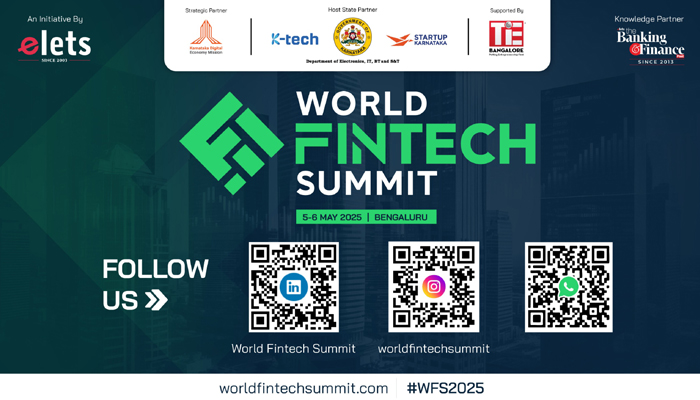A data-driven culture needs the involvement of management, employees, processes, and technologies. Data-driven strategy should be implemented from the top-down approach, said Abinash Adhikari, Head Data Science – Data Science, Zuno General Insurance Limited, in an exclusive interaction with Srajan Agarwal of Elets News Network (ENN).
Could you share the key milestones and challenges in your journey from an Analyst to the Chief Data and Analytics Officer? What were the pivotal moments or projects significantly shaped your career path in data science and analytics?
This journey started from my graduation (1999-2002) and postgraduation (2002- 2004) days, where I learnt about Statistics and Analytics. I got exposure to C Programming Language and Data Analysis tools like R, Matlab, SPSS etc. Also, we had to work on a project for final year submission and for that we had done extensive research on Statistics and its applications. I was always passionate about applying Statistics to all real-life business problems, which inspired me to explore advanced areas like Forecasting, Customer Analytics, Churn Modeling etc.
During my tenure as a part-time lecturer at a few Colleges, I was exposed to various Statistical Science areas, which helped me solve practical problems for my Ph.D. thesis papers. When I was working at the Indian Statistical Institute, we invented new social development index measures for MOSPI (Ministry of Statistics and Program Implementation).
My corporate stint started from 2007 and my initial breakthrough was through a project where we developed a Forecasting Engine absolutely from scratch I worked as the Principal Data Scientist, and I was the primary contributor in that project. Later I got chances to work on various domains like Bank, Telecom, Media, Healthcare, Insurance, Retail etc., and I played different roles like Analyst, Sr, Analyst, Lead Data Scientist, Principal Data Scientist, Chief Data Scientist, Chief Digital Officer and finally as Chief Data & Analytics Officer. Over 19 years of work experience, I have been part of projects like Drug Safety and Efficacy Analysis, Assessment of Risk Factors for Diseases, Media Forecasting and Scenario Planning, Telecom Churn Prediction, Legal Process Automation, Fraud Detection and many more.
In your opinion, what are the essential characteristics and skills that define the best data science team? How do you balance technical expertise with other attributes like creativity, problem- solving ability, and collaboration?
The best Data Science team should possess diverse skills and characteristics, allowing them to tackle complex problems and drive innovation effectively. I believe in a Full-Stack Data Science team where there will be not only Data Scientists but also Business Analysts, Domain EXperts, Data Analysts, Machine Learning Engineers, Data Operations Engineers, and Software Engineers. This allows a team to deliver a complete Data Science project without being dependent on an IT team.
Also Read | The future of life insurance: AI, blockchain and tech-driven hyper-personalisation
Also, while hiring resources, I give more weightage to Practical Knowledge, Passion, Dedication, Hard Work, Honesty and Transparency compared to technical skills only, as I have seen that the best Data Scientists might not be good team players and build great teams, we need team players and not just the model builders. The best-performing Data Science team collaborates with the Stakeholders, shares knowledge, creates awareness, thinks outside the boX, explores unconventional approaches, innovates through creations, is adaptable and embraces the culture of continuous learning.
What are some of the most impactful digital transformation solutions using AI and ML that you have implemented or seen implemented in general insurance companies? How do these solutions improve operational efficiency, customer satisfaction, and overall business growth?
Outside common Insurance Analytics use cases like Underwriting and Risk Assessment, Claim Automation, Customer Service, Reserving etc., Insurance companies are slowly picking up using Machine Learning and Artificial Intelligence for solving complex use cases like Fraud Detection, Assessing Motor Damage Condition, Digital Medical Checkups, AI–based marketing etc.
In India, several insurance companies have benefitted from the usage of AI and ML, and there are several use cases, such as Digital Pre-Insurance Medical Checkups, Automated Risk Profiling of Insurance Customers, AI- enabled Chatbots, Renewal Propensity, Claim Likelihood, Agent Churn Analysis, Partner Performance Analysis, etc.
At Zuno General Insurance, we aim to make our organisation AI-empowered and enable our Stakeholders to generate high-value businesses through the usage of Core Analytics and Reporting. We have an in-house Data Science team working on several use cases, such as Motor Claim Propensity, Group Health Insurance Fraud Detection, Motor Insurance Fraud Detection, Renewal Propensity, and many more.
Our Group Health Fraud Detection Solution is based on a hybrid approach that uses the Power of Machine Learning and business and domain knowledge. The solution has generated significant cost savings for the organisation and automated the identification of fraud cases.
What strategies do you recommend for fostering a data-driven culture within an organisation? How can companies ensure that data and analytics are effectively integrated into decision- making processes at all levels?
Data-driven culture needs involvement of management, employees, processes, and technologies. Data-driven strategy should be implemented from the top-down approach.
The board and management should have the vision and mission for the organisation to be data-driven. Everybody in an organisation should understand the importance of Data and ML. A Data-driven culture can be built by spreading awareness, promoting the importance of data & analytics and integrating the data- driven decision-making processes at all levels.
Data ownership is mandatory, and all employees must follow data governance practices. A data-driven culture empowers employees and organisations to make informed decisions, drive innovation, generate more businesses, and win against their competitors.
What are some common challenges you face in data science projects, particularly in the insurance industry, and how do you overcome them?
I keep telling people that any Data Science Project will fail miserably unless we have good domain knowledge, business knowledge and the correct problem statement. So, the most important thing is the problem statement we will solve. The rest of the important aspects are Data Availability, Data Accessibility and Data Quality.
General Insurance Companies have large volumes of data (for multiple products they sell to their customers). These need disparate systems for storing the required data (e.g., policy coverage, pricing, underwriting, claims management, risk, etc.). It has been observed that in organisations, different teams use different sets of data, and then they get different results for the same problem statement. So, it is very important to come up with a Single Source of Truth (Data Lake or Warehouse or Mart) which then should be used by all the functions.
What future trends do you foresee in the application of data science, AI, and ML in the insurance sector? How should companies prepare to adopt these emerging technologies to stay ahead in the competitive landscape?
Insurance Companies need to be more data-driven. They need to adopt advanced techniques like Deep Learning and Reinforcement learning to build advanced models that will enhance risk assessment, pricing accuracy, and underwriting decisions. If analysed properly, unstructured data from social media, IoT devices, and wearables would depict more insights about customer behavior (e.g., driving habits, vehicle usage, and lifestyle choices) and risk profiles.
Also Read | Unlocking The Power of Gen AI: A Tech Odyssey in Insurance Innovation
Most insurance companies use actuarial science and other traditional rule-based methods for pricing and reserving. I foresee a change in this. Advanced data Science methods can make the pricing and reserving strategy more intelligent and useful to the organisation.
Each customer has different needs and preferences. Hence, personalised insurance products could be an interesting area to focus on. AI and ML algorithms will enable insurers to analyse vast amounts of customer data and provide personalised recommendations, pricing, and coverage options in real time, enhancing customer satisfaction and loyalty.
To stay ahead in the competition, organisations need to invest in talent and expertise, modernise infrastructure and platforms, access cutting-edge AI & ML technologies, build strategic partnerships and ecosystems to accelerate innovation and co-create solutions, embrace a culture of innovation, promote data-driven culture and bring positive change management in the organisation, so that the organisation is ready
to adopt and support Data and ML practices.
Elets The Banking and Finance Post Magazine has carved out a niche for itself in the crowded market with exclusive & unique content. Get in-depth insights on trend-setting innovations & transformation in the BFSI sector. Best offers for Print + Digital issues! Subscribe here➔ www.eletsonline.com/subscription/




















